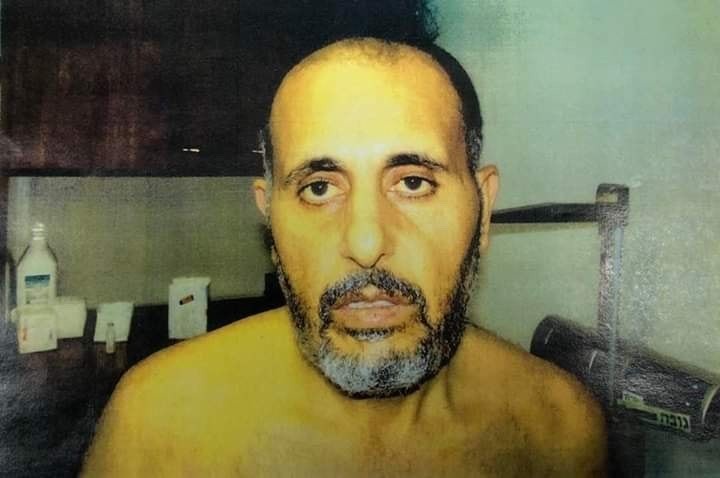
In the last months of 2019 and early 2020, a growing number of cases of severe physical torture against Palestinian detainees carried out by Israeli Shin Bet interrogators have been documented. While torture and abuse of various kinds have been a mainstay of the Israeli interrogation process, after a 1999 Israeli Supreme Court ruling and amid widespread international attention, torture under interrogation for some years focused on physical and psychological techniques that were less likely to leave physical scars. However, these tactics, including sleep deprivation, extreme heat and cold, solitary confinement and the use of prolonged shackling in painful positions, are often effective in extracting coerced confessions.
Torture: A mainstay of Israeli apartheid and colonialism
Indeed, many of the same techniques were documented as being used by U.S. interrogators holding detainees in Guantanamo, and U.S. and Israeli security agencies have shared information about interrogation and torture techniques. It must be noted that the Israeli Supreme Court never criminalized torture; it continually allowed “exceptions” through the designation of a detainee as a “ticking time bomb.” In practice, Palestinian victims of torture have repeatedly pursued legal accountability for the crimes committed against them, only to find that the Israeli Supreme Court considered their torture to be a permitted form of “extreme interrogation,” justified for the “security of the state” of occupation, colonialism, apartheid and racism.
Torture is unquestionably illegal under international law. The UN Convention Against Torture defines torture as any practice intentionally inflicting severe physical or mental pain on a victim in order to obtain information or a confession, or in order to punish the victim for their conduct or suspected conduct. Torture is also prohibited under the laws of war and the International Covenant on Civil and Political Rights.
The torture of Samer Arbeed
The case of Samer Arbeed helped to highlight the escalating return of severe physical torture as an official policy of the Israeli Shin Bet. Only days after his arrest, Arbeed was taken to Hadassah hospital unconscious with eleven broken ribs, lung injuries and kidney failure. While in the hospital, an Israeli guard released tear gas into his room, after which Arbeed developed pneumonia. Despite the clear evidence of severe torture and the medical records of his abuse, the Israeli Supreme Court denied Arbeed access to his lawyer for an extended period, while the Palestinian lawyers in the case were repeatedly subjected to gag orders.
Samer Arbeed is not alone. While Israeli Shin Bet spokespeople were smearing Palestinian prisoners in media attacks, these same prisoners have been subjected to severe physical and psychological torture under interrogation. In a December press conference, Addameer Prisoner Support and Human Rights Association highlighted some of the torture techniques used by Israeli interrogators, including harsh beatings, stress positions like the “frog” or “banana,” sleep deprivation and ongoing threats against family members.
Palestinian lawyers highlight torture and abuse
As Addameer noted, “On 10 September 2019, a gag order was issued on a number of cases under interrogation at al-Mascobiyya interrogation center. Hence, preventing the public, including Addameer the legal representative, from publishing any information regarding these cases. The gag order was issued based on a request from the Israeli intelligence agency and Israeli police and was renewed multiple times. Despite the gag order, Israeli media outlets and the Israeli intelligence agency published information to the public about some of those cases. This inconsistent enforcement of the gag order, where the Israeli sources exercised the freedom to publish, can only be understood as a means to influence public opinion. Most importantly, the issuance of this gag order is an attempt to hide crimes committed against the detainees and prevent the public and the legal representatives from exposing the details of the crimes of torture and ill-treatment that were committed against the detainees in question throughout the past months.”
Walid Hanatsheh: Torture under interrogation
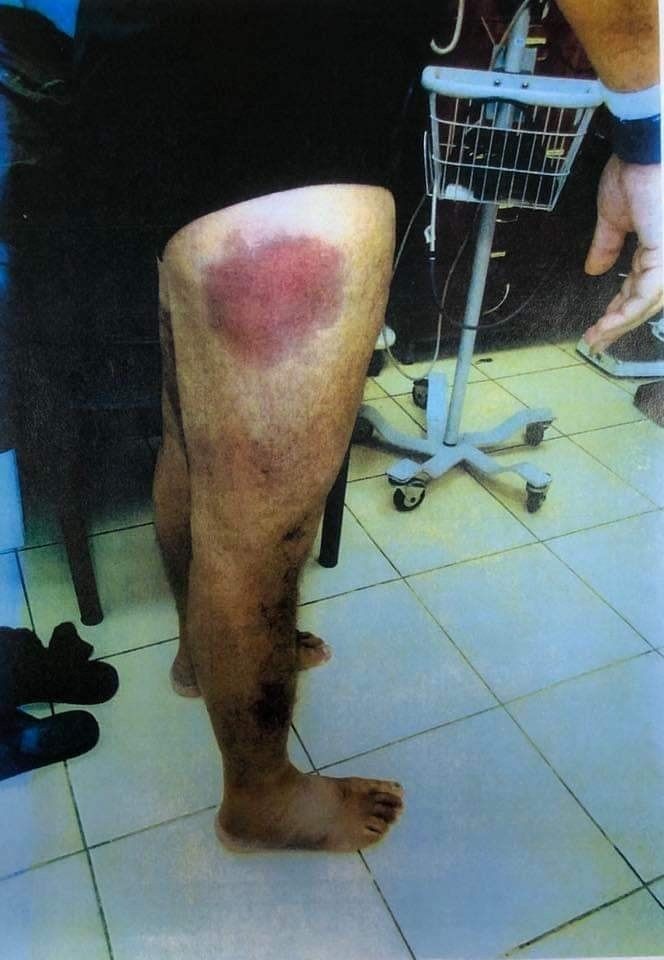
On 17 January 2020, photos of Walid Hanatsheh, one of the Palestinians detained, were released to the media, with his body showing clear signs of torture under interrogation. Bayan Hanatsheh, Walid’s wife, said in an interview published at Hadf News that the family obtained photos that displayed the bruises on his hands, neck, feet and throughout his body. She noted that he was brought to the military court in a wheelchair after his interrogation and that Walid said in court that he was unable to walk due to severe torture. His lawyer from Addameer demanded that the judge reveal the circumstances in which Hanatsheh was interrogated.
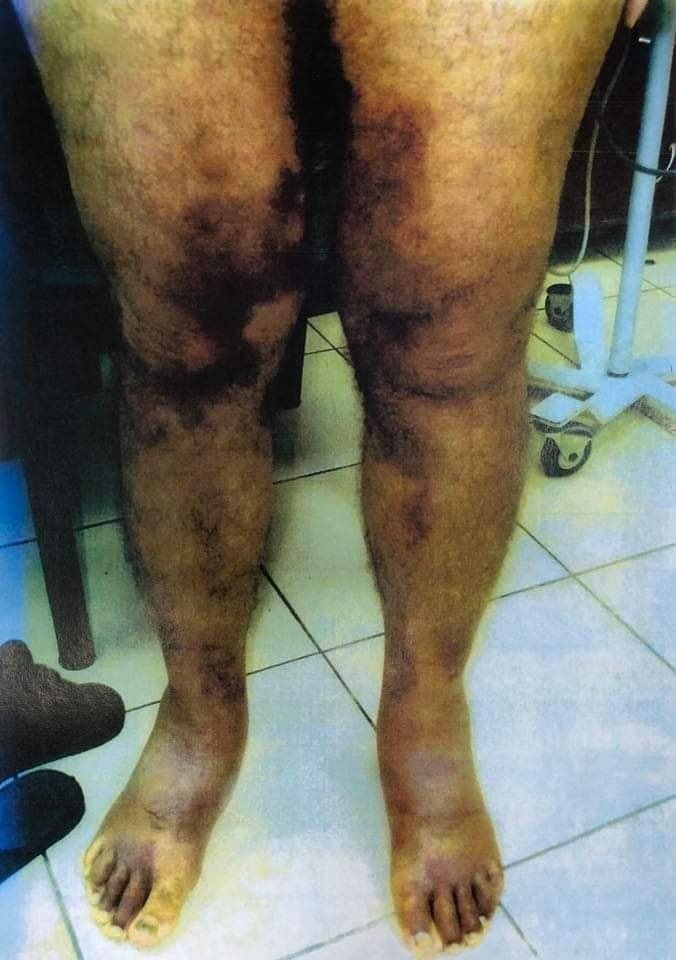
“After the occupation court lifted the ban on our attendance at the trial, we entered the courtroom for two minutes and saw a man who seemed old and we did not recognize him at first, but he called me by my name,” Bayan said. “I was horrified to see him, his eyes were watering, his beard was patchy and plucked…his only concern was to reassure us because he had been forbidden to communicate with us throughout his interrogation.”
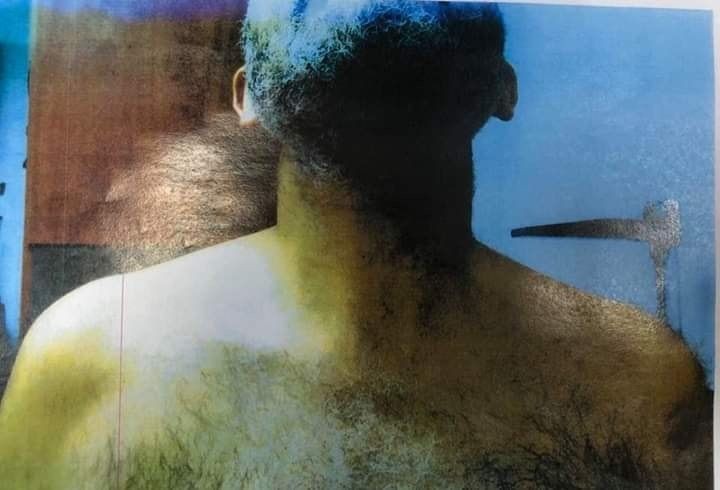
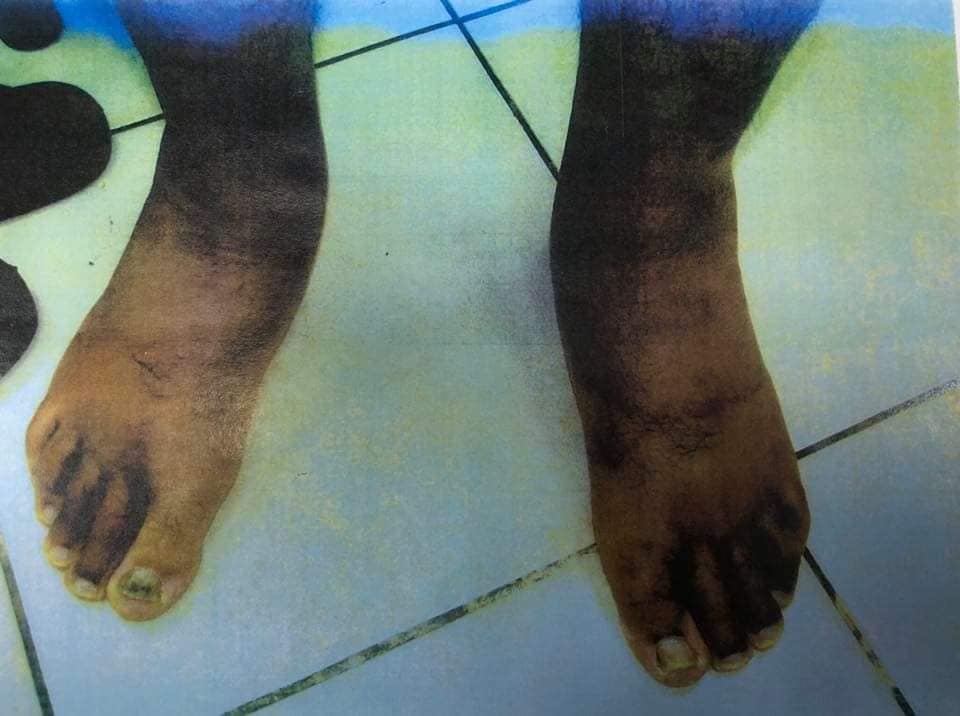
Bayan also noted that their daughter, Mays, 21, was detained by Israeli occupation forces for three days as a means of extracting a coerced confession from her husband. They told him that his daughter was imprisoned and under threat and also showed him a live feed of Israeli occupation forces storming their family home in Ramallah and taking measurements for its demolition.
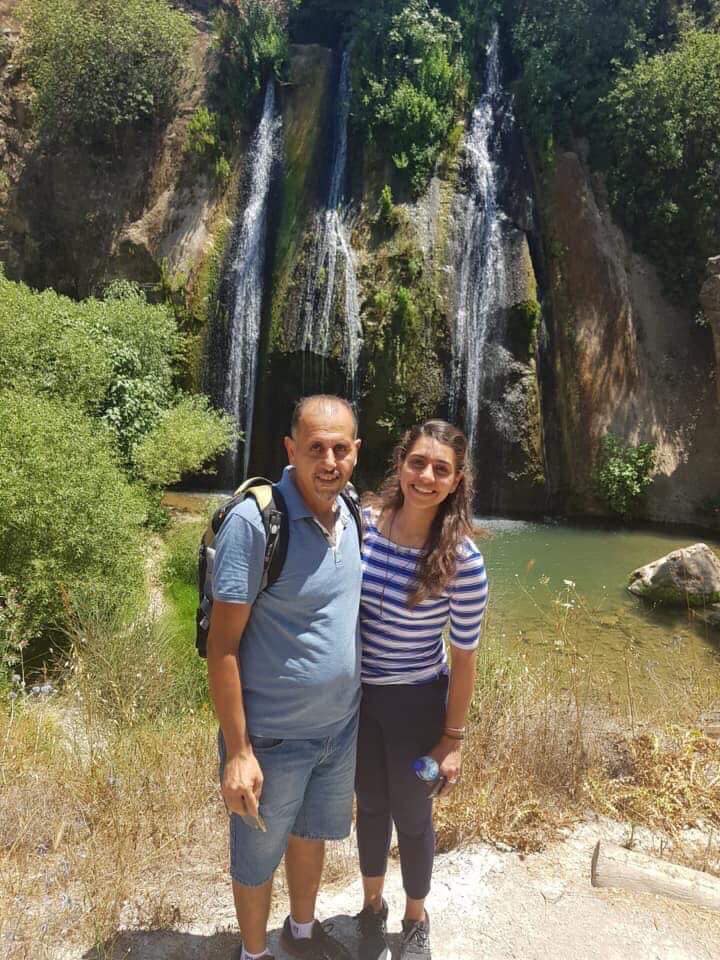
In Hanatsheh’s case, he was interrogated continuously for 23 hours at a time, with the replacement of interrogators approximately every eight hours. He was shackled in various stress positions and beaten while held there until he fell to the ground. Individual hairs were plucked from his beard and he was hit in the face by multiple interrogators, his lawyers said.
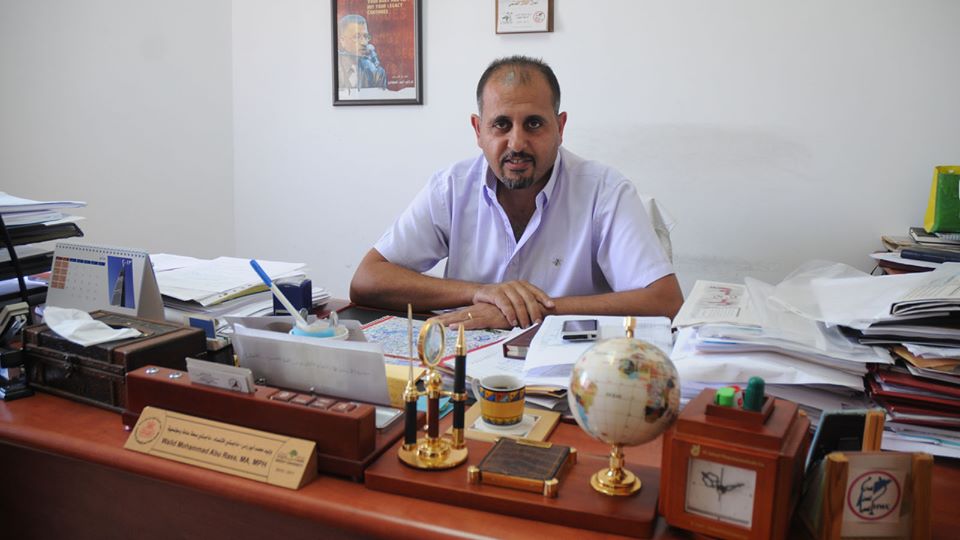
“Earth-shattering” crimes demand action
Sahar Francis, the executive director of Addameer, noted of the photos in Hanatsheh’s case that “These pictures are important in proving and documenting torture. Unfortunately, we do not succeed in receiving photos for all of the cases. In other cases, we have medical reports without pictures but a description of the prisoner’s situation, as in the case of Samer Arbeed.”
Former prisoner and long-term hunger striker Khader Adnan spoke out in response to the photos, calling them “earth-shattering.” He urged immediate Palestinian national attention to respond to the escalating crimes of torture, likening the experience of Palestinian prisoners to the infamous images of Abu Ghraib prison under U.S. occupation in Iraq.
The Popular Front for the Liberation of Palestine issued a statement in response to the repeated cases of severe torture, noting that “The Front has experienced and confronted the policy of torture for over 50 years and developed a revolutionary school that graduated generations of revolutionaries, who carried and still carry forward the banner in the dungeons and interrogation cells, who cannot be shaken by crimes or policies of torture.
The Front emphasized that the international community and concerned institutions have neglected the crimes taking place in the dungeons of the prisons of the Zionist occupier against the prisoners, indicating once again the complicity of imperialism in these crimes.”
The exposure of the use of torture is not limited to Hanatsheh and Arbeed; severe physical torture was also reportedly used in the cases of Qassam Barghouthi and Karmel Barghouthi, whose mother Widad was also detained as a method of pressure on her sons, and in the cases of Yazan Maghamis and Nizam Mohammed.
Palestinian youth activists face torture
Several other prisoners also experienced extensive physical torture, including beatings and the use of stress positions, including Palestinian youth activist and new graduate Mays Abu Ghosh, whose parents spoke about seeing her after the effects of her torture and interrogation. Rather than being brought for a family visit, Abu Ghosh’s parents were actually brought in a further attempt to extract a false, coerced confession from her.
Palestinian youth activist Tareq Matar has been repeatedly jailed without charge or trial under administrative detention; after his most recent arrest and interrogation in November 2019, Matar is now being brought into court in a wheelchair, despite his previous status of physical health and athleticism after being beaten in stress positions under interrogation.
Jamil Darawi, 37, previously spent 14 years in Israeli prison. He was once again detained in November 2019 when Israeli soldiers stormed their family home near Bethlehem, breaking down the door and confining his wife, Rawan, to a room with their three daughters. Like his fellow Palestinian prisoners, Darawi was severely beaten and tortured under interrogation. Rawan said that when she saw him in court, she thought that he was not present until he called out to her: “I am here, Rawan, I am Jamil!” His jaw had been broken after an Israeli interrogator punched him and stamped on his face after he fell to the ground. He was returned to interrogation after being given painkillers and his face was still disfigured when he was finally brought before the military courts.
Demanding justice
Addameer has announced its intention to raise these cases before international bodies to call for justice for Palestinian torture victims and accountability for the Israeli state, the perpetrator of these crimes. In Gaza, the Popular Front for the Liberation of Palestine called for a protest on Monday outside the International Committee of the Red Cross (ICRC) office to demand international action on institutionalized Israeli torture.
The systematic use of torture in Israeli interrogation not only intends to extract false and coerced confessions from Palestinians under interrogation; it also aims to undermine and prevent their steadfastness, the unwillingness to confess. Palestinian sumoud (steadfastness) under interrogation and the refusal to provide information has been the subject of numerous studies and tributes. The book, “Philosophy of Confrontation Behind Bars,” detailed how prisoners strengthen themselves in order to resist all forms of torture. During over 70 years of Israeli occupation, over 70 Palestinian prisoners have been killed under torture.
In recent decades, however, a vast majority of Palestinian prisoners’ cases have involved plea bargains; Israeli occupation forces will drag out military court sessions, interrogations and denied family visits in order to extract some form of limited confession for a plea agreement. Prisoners who refuse to provide the demanded confession are often transferred to administrative detention, imprisonment without charge or trial that is indefinitely renewable. Palestinians have spent years at a time jailed under administrative detention.
Attacks on Palestinian prisoners tied to attacks on global movement
The so-called “Erdan Commission,” named for Israeli Minister of Public Security (over the Israel Prison Service) Gilad Erdan – who also serves as the Minister of Strategic Affairs, responsible for attacking Palestine solidarity and boycott, divestment and sanctions (BDS) campaigns around the world – has announced an effort to roll back the gains won by Palestinian prisoners through years of struggle. Thus, women prisoners are denied access to a library or to goods for embroidery and crafts; child prisoners are transferred without their representatives; access to food and water is being cut; conditions of living are barely tolerable.
The reassertion of overt reliance on severe physical torture comes hand in hand with this overall policy of outright Israeli war against Palestinian prisoners. It also comes hand in hand with the escalating attacks internationally against Palestinian human rights organizations and global campaigners for Palestinian rights, smeared by Erdan’s ministry with allegations based on tortured, coerced confessions or direct Israeli military propaganda.
Erdan has attempted to get Palestinian human rights organizations that focus on Palestinian prisoners defunded. His ministry has also attempted – and failed – to have Samidoun activists and Palestinian leftists like Khaled Barakat blocked from speaking in the European Parliament about Israeli repression.
Need for action
Samidoun Palestinian Prisoner Solidarity Network recognizes the urgent need to build the strongest possible front to confront Israeli torture internationally through popular struggle, including escalating the boycott, divestment and sanctions (BDS) campaign. We must not allow the Israeli occupation to isolate Palestinian prisoners in solitary confinement or through our silence. Torture has been part and parcel of the Israeli colonial weapons of control for over 70 years, and the impunity of the Israeli state – backed up by U.S., European, Canadian and other imperialist powers’ support – may not be allowed to continue. We urge all to take action.
If you or your organization would like to join the growing campaign against torture, please contact us at samidoun@samidoun.net.
Discover more from Samidoun: Palestinian Prisoner Solidarity Network
Subscribe to get the latest posts sent to your email.




